Exclusive Interview with Laura Gabbert and Doug Pray: The Power of Film
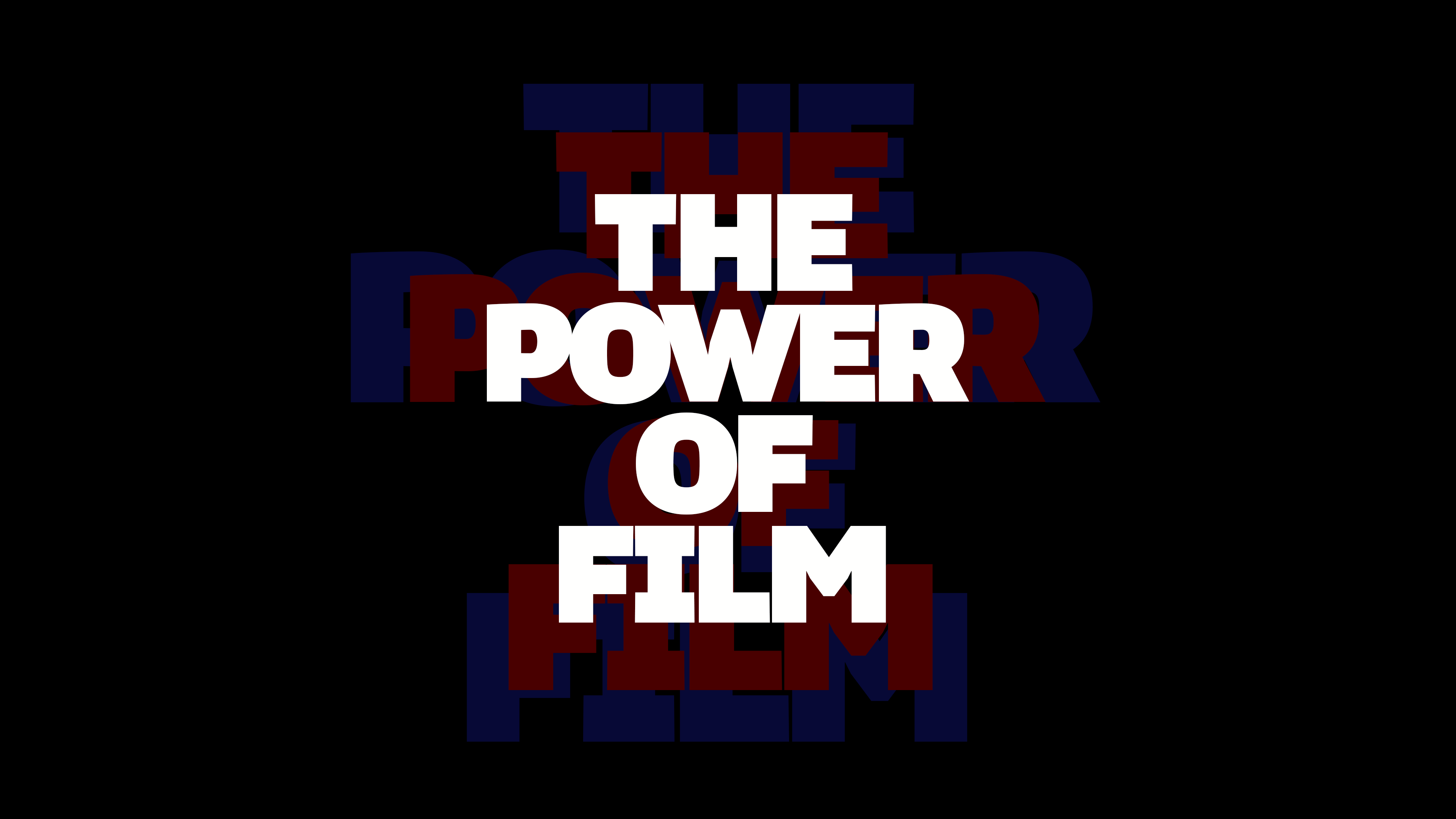
The Power of Film is a six-part series hosted and curated by renowned UCLA professor emeritus, founding chair of UCLA’s Film and Television Producers Program, and one of the founders of the UCLA Film Archive, Howard Suber. Each 40-minute episode in The Power of Film dives deep into the art of storytelling by examining the defining principles and inner workings of beloved films, all based on Suber’s 50+ years of teaching film.
Currently airing on TCM, The Power of Film is directed by Laura Gabbert and written by Howard Suber and Doug Pray, who also serves as supervising editor. Gabbert and Pray previously studied under and worked closely with Suber at the UCLA School of Film, Theater, and Television where they received their MFA degrees.
Classic Couple Academy recently spoke with filmmakers Laura Gabbert and Doug Pray about the unique documentary series The Power of Film, their labor of love in tribute to Suber and truly a must-watch experience for every cinephile.
Classic Couple: You were both students of Howard Suber at UCLA. How did the collaboration on this series come to be? What was your shared vision?
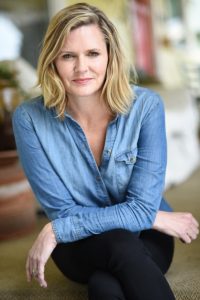
Laura Gabbert: Both Doug and I were grad students of Howard’s in the 90s. We were there at different times and were both fortunate enough to be his TA. We both got to know him quite well, and he became both of our mentors. Doug and I didn’t know each other at that time, but we stayed in touch with Howard. Howard had always talked about an idea of some kind of almost PBS-like Joseph Campbell type series, something that could memorialize his scholarship.
He had written books, of course. He wrote a book called The Power of Film that was published in 2006, which is wonderful, but it doesn’t quite replicate what sitting in a lecture with Howard Suber is like. He was legendary at UCLA. When you arrived to grad school there people would say to you, “You have to take Howard Suber. Don’t leave without taking Howard Zuber.” People from different departments—screenwriters and animators and producers and cinematographers—everyone wanted to take his class. I think that we were all just kind of having lunch one day and talking about this idea, and Doug and I looked at each other and decided let’s just make this happen somehow. And that was a long time ago. But we’re here today and we got it done.
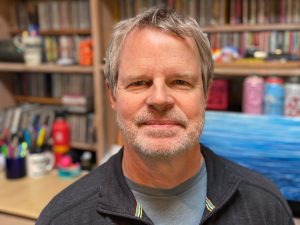
Doug Pray: Really the challenge was he’s been a teacher for many years. He taught well over 50 years, which is quite a lot for any professor at any institution. But his lectures, his classes, would be three or four hours long with an intermission. The biggest challenge was just how can you take 50 years of teaching and break it down into basically six episodes? We had this idea of strong themes that are kind of his greatest hits.
There are many, many things he talked about that are not in the series and plenty of films that are amazing that may not be touched on as well. But the bottom line was just about how can we organize this, and so we decided to make six episodes. We decided to film him for six days on a soundstage speaking directly to the audience because he’s not a celebrity. He’s not a known professor outside of UCLA. So, it was a way for people to connect with him very directly. Here’s a professor who’s going to bring me into the world of film, and he’s going to bring me into this world of this very personal kind of an almost psychological view of what movies are and why they work and how they work.
Classic Couple: What was your shared vision with Howard?
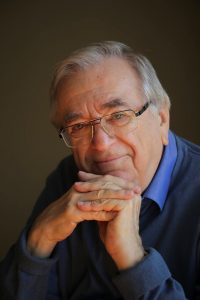
Laura Gabbert: It was very much a shared vision, very much a collaboration—not just Howard and Doug and myself, sort of carrying the ball for six years. Another former TA, Joey Sierra, was also very involved in helping us think about how to break down his scholarship. There’s quite a bit of time put into outlining some of his greatest hits, if you will, some of his big ideas. It was collaborative all the way through. Howard looked at all of our cuts and we Zoomed thousands of times.
Doug Pray: Sometimes Howard would be like, “I said the wrong word here. I really want to fix that.” So we would do voiceover pickups that you can’t detect in the final product. We had two editors, and myself so three editors over the six years and we kind of passed the baton at different times. There were times there’ll be a whole wall with 250 index cards taped up just like a screenplay like a screenwriter does. It really was a lot of back and forth. Sometimes we’d show it to Howard, and he’d say, “You miss my point.” We felt like bad students, like we failed the exam. Here we are at this age still trying to impress our teacher.
Laura Gabbert: It’s all generated by Howard but like any film, so much of it happens in the edit room. Doug’s being modest but he did a lot of the heavy lifting the last year of the edit to really make it sing and really come together, as well our other editors. Howard was very involved in that piece of it too. He watched everything that Doug cut.
Doug Pray: Howard was so patient because Laura and I have other work that we’re doing, and this has been a complete labor of love. No budget, no funding, no companies, no bosses, nothing. And it’s rare to have an independently produced television series. This really is the definition of independent and we’re very proud of that.
Classic Couple: What are you most proud of in this final product, which was six years in the making?
Doug Pray: I think the thing I’m most proud of is that it is unique. It’s quite different because so many film appreciation movies or shows are either a review, or they’re historical appreciation or they’re focused on a celebrity. Or, if they’re technical, they are like a masterclass in the tiny details. All of these are fine and very entertaining.
But, I love that this is about humanity. I love that this is about the broadest view of what makes a good story. It’s about storytelling. It didn’t even have to be about film.
Howard’s teaching has certainly affected Laura and I and, I can say with total confidence, hundreds of other graduates of his classes. It has given them a view of what is the audience feeling? What’s the power of memory? Why is loss such a powerful recurring theme? Why are so many endings actually not happy endings? And why do we love those films? Why are the heroes not always that likable? Why are the villains sometimes awesome? It’s just all these things he flips on.
That’s what he did for us as students, and I think I’m most proud that this series might open that door to other filmmakers—to other writers to poets, artists, painters. Just the idea that there’s this whole level of subterranean feelings that are universal, have gone back 20,000 years, and it’s just very human. I think that’s what I’m proud of—and Howard delivered it.
Laura Gabbert: I agree with what Doug said and there’s a feeling of generosity about it where we’re sharing Howard’s knowledge and what makes him so special and extraordinary as a teacher. I love that we’re putting that out into the world. It’s the power of ideas. Howard has these powerful ideas, and we are happy to have been the conduit through which those ideas can reach a bigger audience. Our mentor taught us this and gave us these gifts. And so, it’s been really gratifying to kind of give back to him, to his other students, and to anybody who watches it.
Classic Couple: What does it mean to the two of you to have the series premiere on TCM and shared with the TCM audience?
Laura Gabbert: It’s an unusual series. And we just really felt strongly about making this independently—get it done and then find a home for it because we believed in it. So, as we were finishing the series, we thought that this feels like a good time to bring this to Charlie Tabesh (TCM programming executive). And he said yes immediately. He loved it and said it was perfect for them.
Doug Pray: We were just so thrilled to have TCM as our launch pad. I can’t imagine a better home because it’s people who appreciate cinema. I hope it finds an even wider audience, but TCM is the perfect place to premiere because they appreciated it—they get it. Charlie understood what we were trying to do, and he really respected it. So, he’s kind of been our hero and TCM has just been wonderful.
Classic Couple: If you had to recommend a single film for a new film student to watch to understand the power of film, what would each of your selections be? Might you share what you believe Howard’s would be?
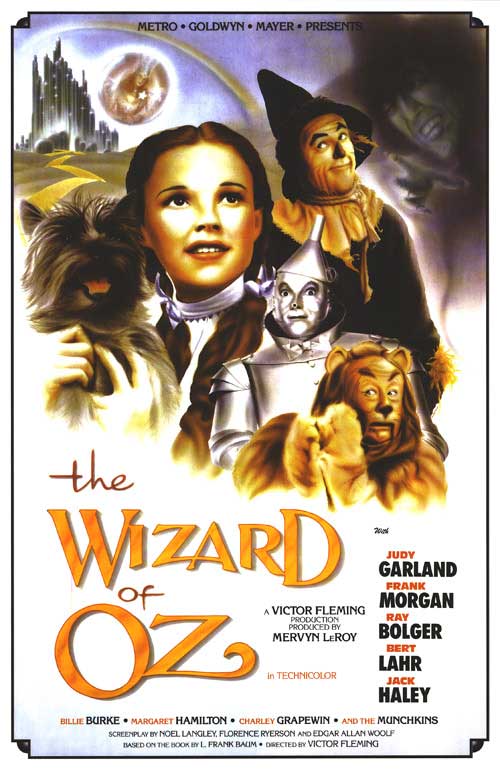
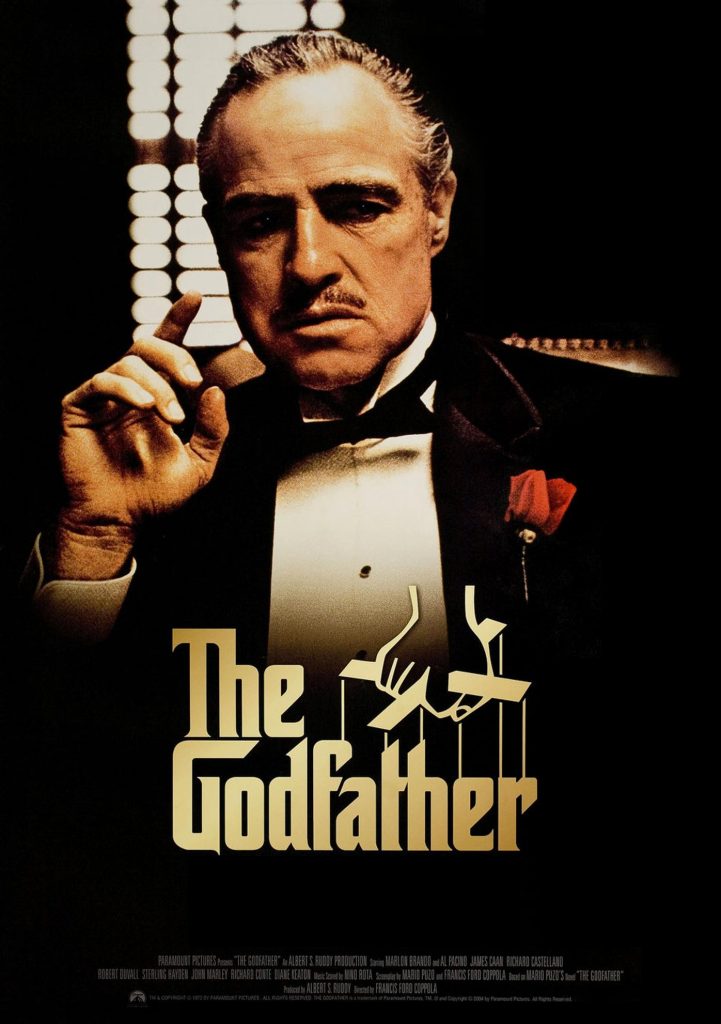
Doug Pray: Probably that one film he talks about a little bit more than the others—The Godfather. Howard talks about with a special affection because it is so classic. And it’s funny because I personally hate gangster films; I hate violent films. But The Godfather is so beautifully constructed. And it really brings to the fore almost every single principle that Howard talks about.
And the other one is The Wizard of Oz, which he actually ends with. It’s not a spoiler or anything but in episode six, the very last film that he really talks about, he kind of lands comfortably with as one movie that everybody can kind of relate to in different ways is The Wizard of Oz. It’s almost an emotional ending because you feel the ending of the whole series coming and you can feel this is for Howard a bit of a swan song. So, those would be my two.
Laura Gabbert: I agree with The Godfather for sure. Howard usually says his two favorite movies are The Godfather and Singing in the Rain, which we did not include in the series but not on purpose. It just didn’t make the cut. But actually, Singing in the Rain is one for me because I think it also employs all of Howard’s principles. About The Godfather, Howard says in the series that you could watch that today and feel like it was made in 2023. It’s a gangster film but that’s not why it works. It works because it’s about a family. And so, all the feelings and all the emotions that it brings up resonate and we can relate to it. There are countless other films that I love and many that are much more contemporary, but within this context, I think those are the two for me.
